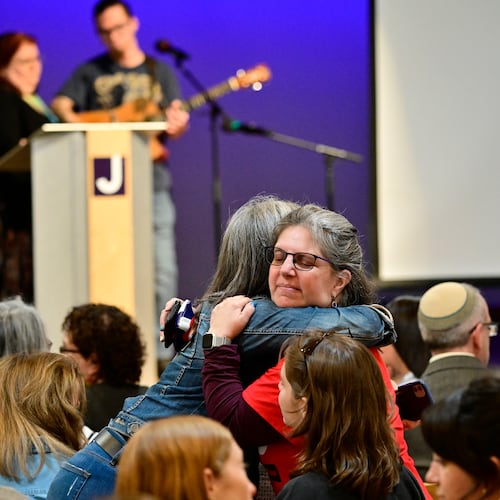When people hear “environmental injustice,” they often think of lead, landfills or asthma rates. But in Vine City, environmental injustice is braided with history — a history of displacement, disinvestment and disrespect.
Now, Georgia Power wants to site yet another substation in our community to support the energy demand for the new Centennial Yards sports and entertainment complex. This comes despite the fact that Vine City already hosts a substation and lives with the daily consequences of lead contamination, air pollution, noise pollution and flooding risks. The burden we bear isn’t just environmental. It’s historical, cumulative and intentional.
This latest infrastructure proposal cannot be divorced from Vine City’s past. Our neighborhood was uprooted for the Georgia Dome and later the Mercedes-Benz Stadium. Promises of revitalization have rarely materialized. Instead, we’ve received noise, traffic and flash floods, with little input and even less investment in our well-being.
What we’re facing now isn’t a new injustice; it’s a continuation of decades of disregard. When Georgia Power announced plans for a new electrical substation in Vine City in mid-April, even the most engaged residents were caught off guard. There had been no broad public forum, no transparent process to choose the site and no acknowledgment of what this community has already endured.
Georgia should deny projects that worsen public health
Credit: hand
Credit: hand
For Vine City, this isn’t just about one project; it’s about cumulative harm. For decades, our community has been disproportionately burdened by environmental hazards, urban renewal displacements and broken promises. The proposed substation would be the second in the neighborhood — and that’s not counting the legacy of lead contamination, flooding and decades of disinvestment.
Environmental justice isn’t just about remedying pollution. It’s about who carries the burden of development. Vine City was carved up for the Georgia Dome and the Mercedes-Benz Stadium. Residents have lived through displacement, disinvestment and disregard. What may seem like a technical or even “blind” siting decision to some is, to us, a continuation of that legacy.
Siting decisions must assess more than whether a project meets technical codes. They must ask: What else has this community endured? Cumulative impacts, or the layering of harm, must be part of the equation.
Experts have warned that sources of pollution do not operate in isolation. Environmental and public health stressors build up, especially in communities of color. New Jersey has already taken steps to embed this principle into law. In 2020, it became the first state to deny permits for new or expanded facilities that would worsen environmental or public health burdens in already overburdened communities. Georgia must follow suit.
Despite glossy language about “community engagement,” Vine City residents were not meaningfully consulted on this substation. The process was opaque. The timeline, rushed. For many, even finding out about the project required being “in the know” — a luxury that marginalized communities are rarely afforded.
Three ways Georgia Power can make its process more fair
Communities like Vine City deserve more than a public notice. We deserve meaningful involvement — the kind that starts before plans are finalized and meaningfully incorporates community input into decision-making. Our voices should be part of shaping our future, not afterthoughts in someone else’s design.
If the state of Georgia is serious about fairness and health, it must assess projects like this through a cumulative impacts lens. It must truly center environmental justice in policy and also in practice. In Massachusetts, environmental justice laws require state agencies to engage directly and early with impacted communities. That includes making sure public health, climate impacts and equity are central, not peripheral, to infrastructure decisions. Why isn’t that the standard here?
To be clear, Vine City is not against infrastructure improvements or development. We are against being treated as invisible. No new substation should move forward until there’s a full and transparent process that accounts for our neighborhood’s past and recognizes our right to thrive in the future.
If Georgia Power wants to build a smarter, cleaner energy future, it must start by respecting the people its infrastructure will impact the most. That means:
- No new infrastructure in Vine City until a full, transparent cumulative impacts assessment is conducted.
- Community co-governance in any future siting process, with accountability mechanisms built in.
- Historic repair — not just environmental mitigation — for the harms this community has endured.
Georgia Power, the state and city of Atlanta leaders have a choice: continue a legacy of environmental racism or commit to a new model of energy justice. Vine City isn’t asking for favors. We are demanding fairness.
Mila Turner is a Vine City neighbor, environmental justice researcher and community advocate.
About the Author
Keep Reading
The Latest
Featured



